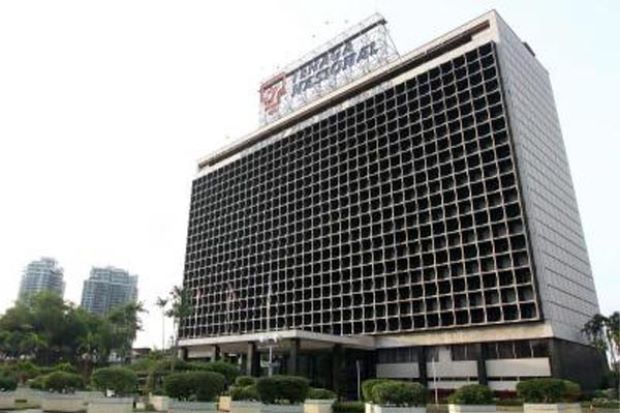Malaysia: Tax reprieve in sight
PETALING JAYA: Companies that have been slapped with additional taxes by the Inland Revenue Board (IRB) may not be as badly impacted as initially envisaged.
According to sources, most of the companies have been negotiating with the IRB and are close to settling the issue and they do not have to pay the high taxes as demanded by the board.
“The companies have argued that they have been paying taxes without fail and every year their books are audited and certified by reputable audit firms. They have also pointed out that their accountants have always been liaising with the tax officials through external auditors on matters related to tax treatment.
“Since the issue came up, some of the audit firms have sought opinions on the tax issues with their international counterparts. They have been presenting this to the IRB and the response has been encouraging with settlement in sight,” said the sources.
Last year, the IRB slapped several companies with additional assessments and the period in review went back several years, beyond the seven-year statutory period under the law. The companies ranged from utility firms to gaming companies and property developers.
The issue came to light when Tenaga Nasional Bhd  (TNB), the dominant electricity player in the country was hit with an additional RM2.1bil tax assessment bill in November 2015. Since then, several other listed companies also disclosed that they have been asked to settle additional taxes by the IRB.
(TNB), the dominant electricity player in the country was hit with an additional RM2.1bil tax assessment bill in November 2015. Since then, several other listed companies also disclosed that they have been asked to settle additional taxes by the IRB.
Among the more prominent cases reported last year were property developer SP Setia Bhd  that had an extra RM75.38mil tax bill, Aeon Credit
that had an extra RM75.38mil tax bill, Aeon Credit  Services Bhd with an additional tax bill of RM97mil and gaming company Magnum Bhd
Services Bhd with an additional tax bill of RM97mil and gaming company Magnum Bhd  that announced an additional tax bill of RM476.47mil in May last year.
that announced an additional tax bill of RM476.47mil in May last year.
Other companies that have reported tax disputes included MK Land Development Bhd, Cocoaland Holdings Bhd  and MMC Corp Bhd
and MMC Corp Bhd  .The disputes between the companies and IRB are highly complex and involved different issues unique to each of the companies. The interpretation on tax treatment differed and considering that the amount is substantial, this has led to the companies challenging the decision of the IRB.
.The disputes between the companies and IRB are highly complex and involved different issues unique to each of the companies. The interpretation on tax treatment differed and considering that the amount is substantial, this has led to the companies challenging the decision of the IRB.
TNB was hit with additional assessment for matters involving reinvestment tax allowance for 2013 and 2014. It filed for a judicial review to challenge the IRB’s decision and obtained a stay of execution until the matter is settled.
TNB, in its clarification to Bursa Malaysia, stated that the IRB had approved the reinvestment tax allowance in January 2013 but reversed the decision in September 2015.
Tax industry consultants said that the decision which came more than two years later forced the utility company to take the IRB to the court, which was unprecedented.
In the latest development, the company said in December 2016 that it has entered into a consent judgement with the IRB to substitute the judicial review with an appeal to the special commissioners of income tax. TNB has not provided for the sum in its books.
As for SP Setia, the tax dispute was in relation to transactions conducted as far back as 2008 up to 2013 and the company only received the notice of additional assessment in November last year.
In a nutshell, the dispute centred on the issue of disposal of properties and land held as investments which the IRB has treated as an income, and liable to be taxed up to 25%. The developer had treated the transaction as real property gains tax (RPGT), which involves a tax rate of 5%, if held for more than five years.
“In each of the cases, the interpretation on the treatment of tax for transactions undertaken has far reaching implications. In the case of TNB, it involves reinvestment tax allowance and the decision will impact other companies that have undertaken large capital projects and paid less tax due to the reinvestment tax allowance.
“As for property developers, it determines whether developers with unsold property and land held for development will pay the rate based on income tax, or RPGT for properties and land held for investment,” said a tax consultant.
The tax consultant said that the companies were unlikely to pay the additional assessments demanded by the IRB.
“Most of the additional assessment tax bill would finally be much lower as it is in the interest of all parties to ensure a speedy end to the matter. It does not benefit anybody to prolong the matter,” said the consultant.
The share price performance of some of these companies were unaffected by the additional tax assessment. However, Magnum lost more than RM550mil in market capitalisation when the announcement was made because its ability to pay dividend came under scrutiny.
So it would benefit the gaming company if a lower settlement could be agreed on.
Source: https://www.thestar.com.my/business/business-news/2018/02/05/tax-reprieve-in-sight/#8AEwlVi3cZAueZUw.99


 English
English




